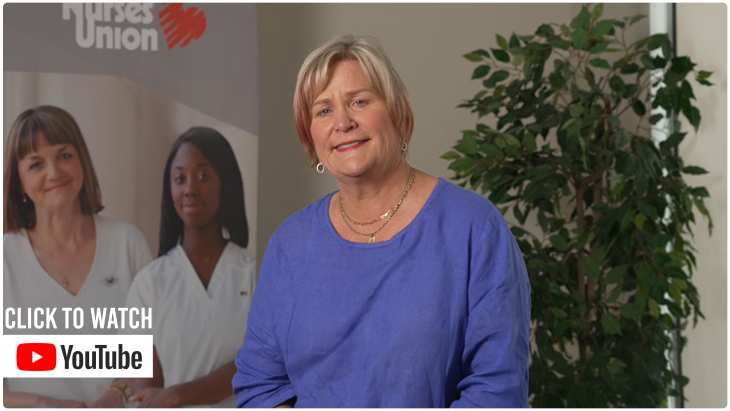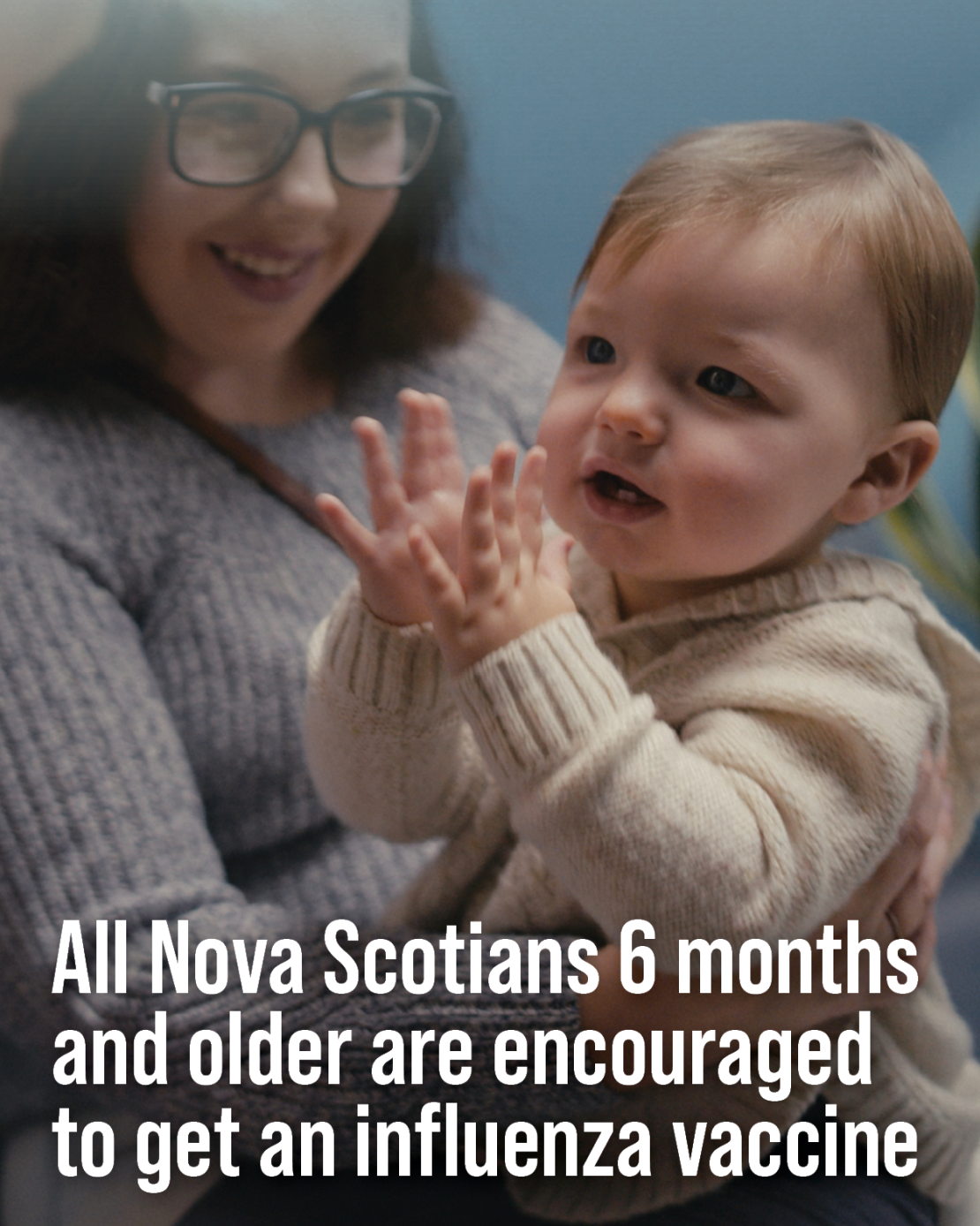Influenza, commonly referred to as “the flu” or “the seasonal flu,” is a contagious respiratory illness caused by the influenza virus. It affects the nose, throat and lungs. Different strains spread quickly and easily every year. Typically, Canada reaches the beginning of flu season from late October to early January.
The influenza vaccine is available for free to all Nova Scotians over six months old from most family physicians, family practice nurses, nurse practitioners and pharmacists in the province.
All Nova Scotians are encouraged to get their annual flu shot, especially those at a high risk of developing influenza-related complications and those who care for them.
Stay up-to-date on vaccinations - influenza and COVID-19 boosters
Stay home and limit your contact with others when sick
Wash and sanitize your hands frequently
Cough/sneeze into a tissue or your elbow
Limit touching your eyes, nose and mouth
Disinfect surfaces like taps, doorknobs and counters
Wear a non-medical mask when in close proximity to others
Respect the decisions of those who wish to mask and/or physically distance
Symptoms typically appear within 1-4 days after exposure, beginning with:
● High fever
● Cough
● General aches & pains
Some people (especially children) may experience:
● Diarrhea
● Nausea or vomiting
Other symptoms may include:
● Headache
● Chills
● Fatigue
● Loss of appetite
● Sore throat
● Runny or stuffy nose
COVID-19 testing is available for all Nova Scotians who have symptoms. For the following people, testing is strongly recommended:
- People and communities at higher risk of severe disease
- People who live and work in higher-risk group living settings
- Frontline health care workers
All Nova Scotians qualify for rapid antigen testing, while those at increased risk of severe illness (or who meet other criteria), also qualify for PCR testing. Book a test online, or call 811 if you need assistance.
All Nova Scotians 6 months and older are encouraged to get an influenza vaccine, especially people at a high risk of complications.
People at high risk of complications include:
Adults 65 and older
The immune system changes with age and this can make it harder for the body to fight off infections. People over 65 are also more likely to have health conditions that can get worse if they get the seasonal flu.
Babies and children 6 months to 5 years
Because of their age, babies' and children's immune systems are still building immunity to fight off serious infections.
Pregnant people
During pregnancy, the body goes through many changes that can make it harder for the body to fight off infections. People who get an influenza vaccine during pregnancy pass on immunity to their baby, helping to protect them from influenza after birth.
Anyone with chronic conditions (like heart disease, asthma and diabetes)
These conditions affect a person's immune system and make it harder to fight off infections.
People at high risk of COVID-19 related illness
People at high risk of COVID-19 related illness should get an influenza vaccine. Getting an influenza vaccine reduces the risk of severe illness, whoch could happen when someone catches both COVID-19 and the seasonal flu.
People who live or care for those at high-risk of influenza-related complications or hospitalization
When healthcare workers and other care providers are vaccinated, their risk of illness decreases. The risk of death and other serious outcomes among the people in their care also decreases.
It's recommended that adults 65 and older get a high-dose influenza vaccine.
This provides a stronger immune response than the regular influenza vaccine.
This high-dose vaccine is available for free to all Nova Scotians over 65.
As flu season reaches us amid the rise of new COVID-19 variants, it can be very difficult to differentiate between a COVID-19 infection, the seasonal flu, and the common cold. A lot of these illnesses have overlapping symptoms, like a runny nose, sore throat, general aches, fatigue and a cough.
People with any one symptom of the seasonal flu or COVID-19 should complete a COVID-19 assessment to determine if they need a COVID-19 test.
Keep in mind, it may take 2-3 days or more after the onset of symptoms for rapid tests to detect COVID-19. About 25% of COVID-19 cases will not be detected by tests.
Regardless of illness – even with a negative COVID-19 test – individuals should take their symptoms seriously and avoid contact with others when sick.
Everyone is at risk of getting influenza, even if you are healthy. By getting the flu shot, you are also protecting others around you who may not be as healthy and are more prone to sickness.
The inactivated flu shot does not contain a live virus and cannot cause influenza. The side effects are usually mild, such as soreness where the needle went into the arm and a mild fever or aches for 1-2 days. If you were exposed to the virus prior to receiving the flu shot, the vaccine cannot prevent you from catching the bug but you are less likely to have severe symptoms.
All vaccine-preventable diseases have declined in countries that have successful vaccination programs. Vaccines have saved many lives and have reduced morbidity and mortality in adults, children and other vulnerable populations.
The flu shot only lasts up to six months so it is important to keep up with the vaccine yearly to protect yourself. The strains of flu are constantly changing as well, so chances are the strain from the previous year will not be the same.

 Login Members Only
Login Members Only





















